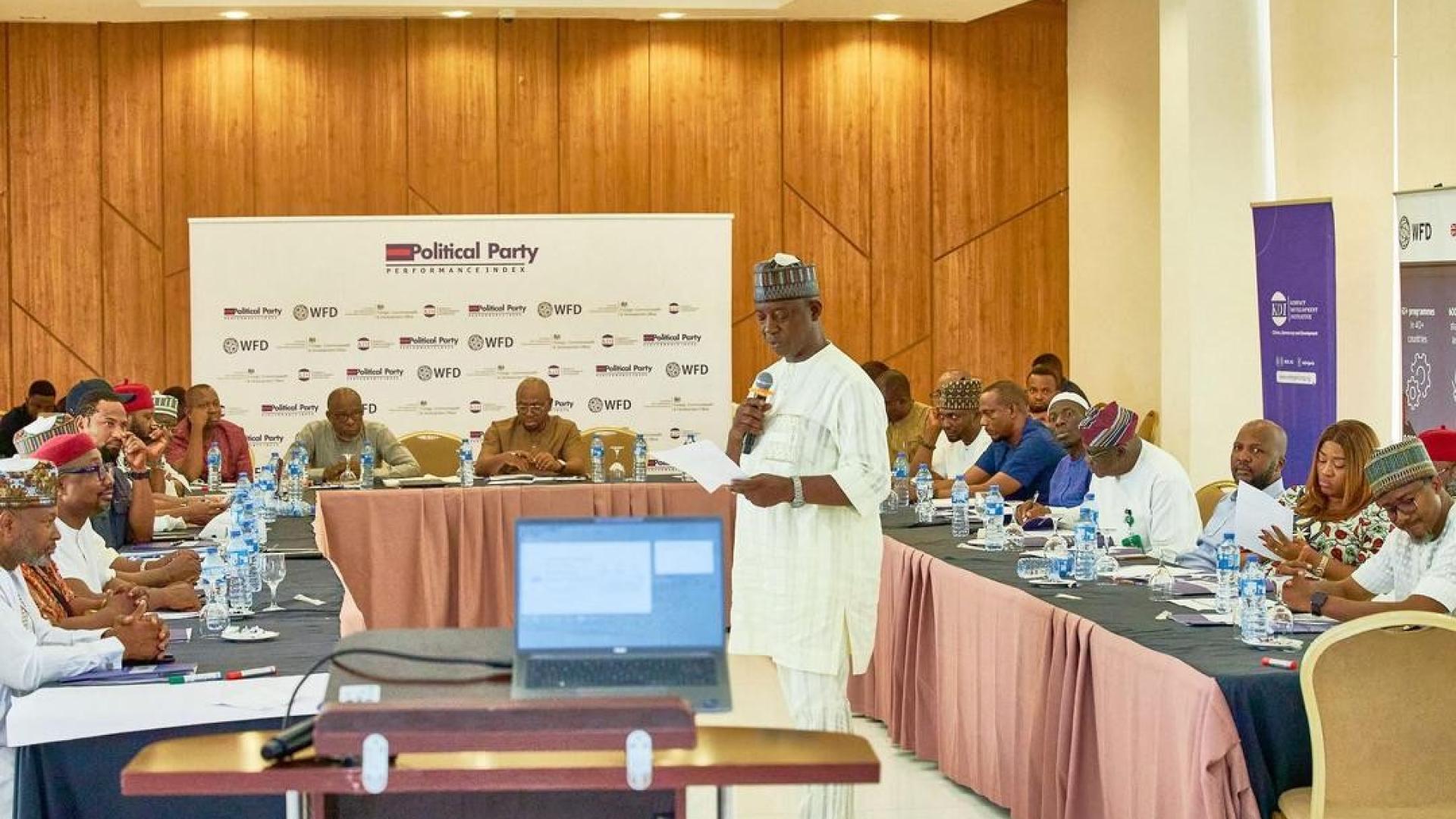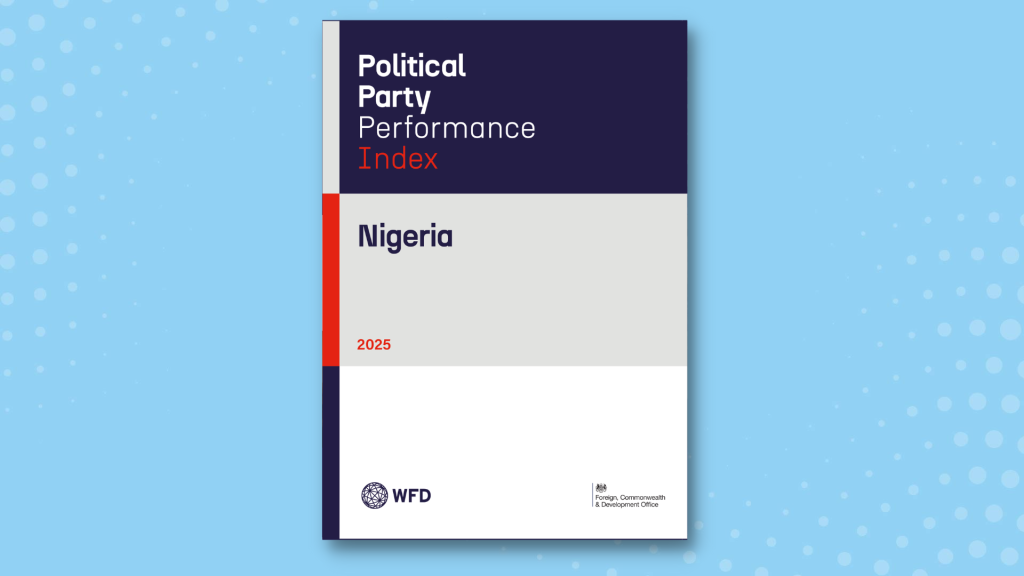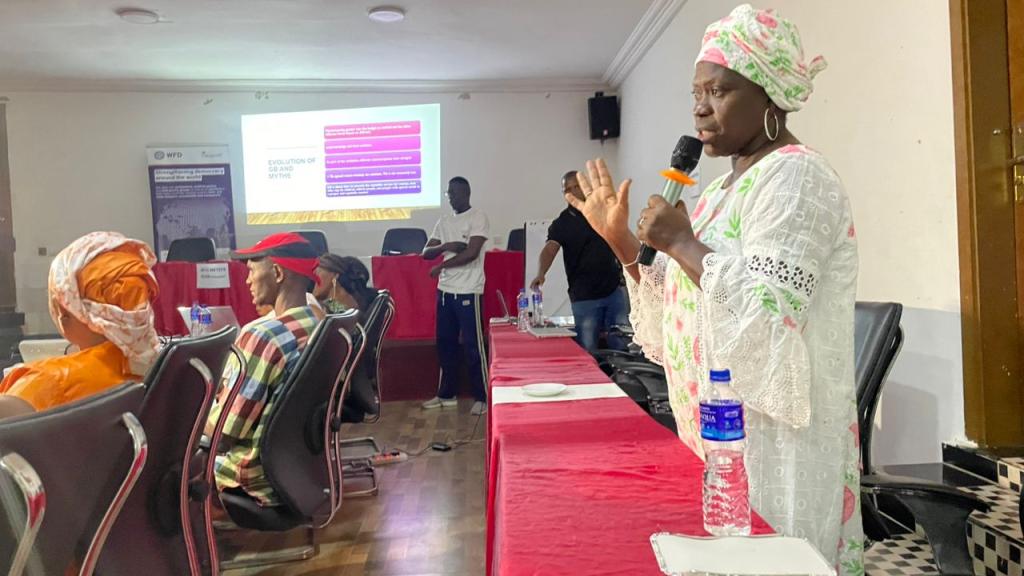Promoting inclusive politics and legislative innovation in Nigeria

From inclusive political party reform to institutionalising post-legislative scrutiny (PLS), the FCDO-funded Nigeria Open Political Party (NOPP) project is contributing to a more open and accountable democratic environment in Nigeria.
One of WFD’s most significant programmatic milestones was the validation of the Political Party Performance Index (PPPI) report with political parties, civil society organisations, the academia and electoral stakeholders. As the first comprehensive baseline mapping of political party operations across all 36 states, the PPPI report has already been endorsed by the Independent National Electoral Commission (INEC), the Inter-party Advisory Committee (IPAC), and political parties. This evidence-based tool supports results-driven political party development by tracking performance across three key areas: inclusiveness, outreach, and legal compliance.
In parallel, WFD and CARE Nigeria conducted the first-ever PAGE (Passage, Assent, Gazette, Execution) analysis of the Disability Act, carried out a national accessibility audit of political party offices and public buildings, and developed minimum standards for the inclusion of persons with disabilities in political parties. These efforts strengthened advocacy with the Inter-Party Advisory Council (IPAC) and have already led to tangible outcomes—most notably, IPAC’s transformation from a memorandum-based entity to one governed by a robust constitution with inclusive, democratic provisions. The Labour Party’s establishment of a Directorate for Persons with Disabilities is another example of progress toward political inclusion.
The programme has also made progress in its engagement with the ruling All Progressives Congress (APC), which announced the establishment of the Progressive Institute, a policy think tank for the party. This development reflects recommendations made by WFD and signals growing interest in organisational reform among political parties.
At the sub-national level, the institutionalisation of PLS was a strategic breakthrough. The Oyo State House of Assembly (OSHA) became the first in the country to establish a dedicated PLS unit, alongside Nigeria’s National Institute for Legislative and Democratic Studies (NILDS). The Oyo Assembly adopted a formal framework to embed the unit within its structure, allocated a budget, and selected an initial law to pilot the process. A technical working group—including NILDS, OSHA, the Ministry of Justice, and WFD—was formed to coordinate implementation. Other state and national institutions have shown interest in adopting this model, and WFD will work closely with the National Assembly to institutionalise PLS in its processes.
Moving forward, the focus will be on deepening political party reforms—particularly around inclusion—and expanding the adoption of PLS across other state legislatures. With sustained collaboration and strategic prioritisation, the programme can continue to drive meaningful progress in democratic governance and representation in Nigeria.



